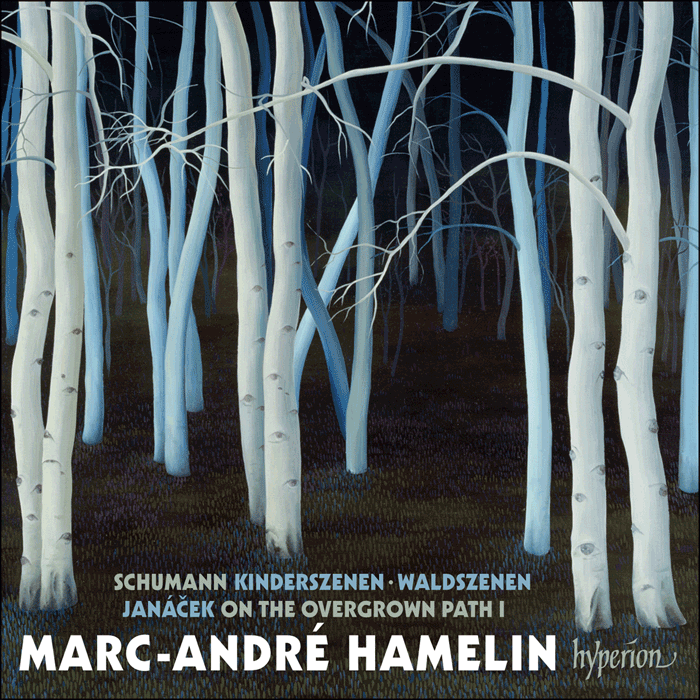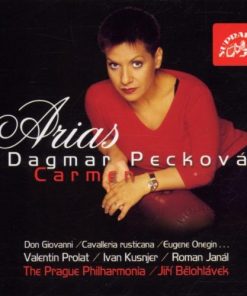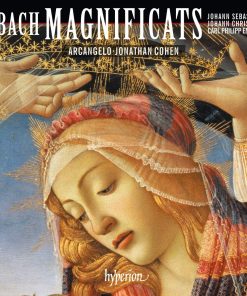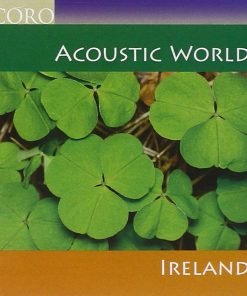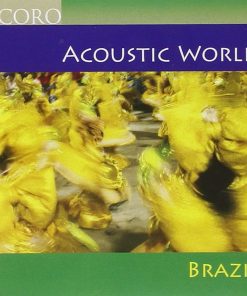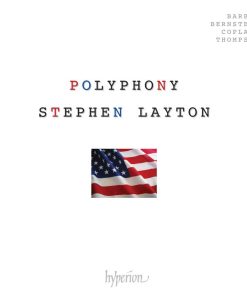Schumann: Kinderszenen & Waldszenen; Janáček: On the overgrown path Book 1 – Marc-André Hamelin Hyperion
$ 20,99 $ 12,59

Po zarostlém chodníčku ‘On the overgrown path’ JW VIII/17[32’04] Leoš Janáček (1854-1928)
1
Book 1 No 1, Our evenings: Naše večery[4’02]
2
Book 1 No 2, A blown-away leaf: Lístek odvanutý[3’13]
3
Book 1 No 3, Come with us!: Pojďte namí![1’43]
4
Book 1 No 4, The Frýdek Madonna: Frýdecká Panna Maria[3’17]
5
Book 1 No 5, They chattered like swallows: Štěbetaly jak laštovičky[2’51]
6
Book 1 No 6, Words fail!: Nelze domluvit![2’16]
7
Book 1 No 7, Good night!: Dobrou noc![3’33]
8
Book 1 No 8, Unutterable anguish: Tak neskonale úzko[3’49]
9
Book 1 No 9, In tears: V pláči[3’34]
10
Book 1 No 10, The barn owl has not flown away!: Sýček neodletěl![3’46]
Waldszenen Op 82[22’35]Robert Schumann (1810-1856)
11
Eintritt[2’28]
12
Jäger auf der Lauer[1’25]
13
Einsame Blumen[2’25]
14
Verrufene Stelle[2’42]
15
Freundliche Landschaft[1’10]
16
Herberge[2’07]
17
Vogel als Prophet[3’46]
18
Jagdlied[2’25]
19
Abschied[4’07]
Kinderszenen Op 15[19’47]Robert Schumann (1810-1856)
20
Von fremden Ländern und Menschen[1’59]
21
Kuriose Geschichte[1’01]
22
Hasche-Mann[0’33]
23
Bittendes Kind[1’08]
24
Glückes genug[1’12]
25
Wichtige Begebenheit[0’56]
26
Träumerei[2’51]
27
Am Kamin[0’54]
28
Ritter vom Steckenpferd[0’38]
29
Fast zu ernst[1’56]
30
Fürchtenmachen[1’36]
31
Kind im Einschlummern[2’13]
32
Der Dichter spricht[2’50]

Marc-André presents a fascinating juxtaposition of two composers who are not obviously musically related, but who are proved on this album to be a felicitous combination.
Schumann’s well-loved Kinderszenen (‘Scenes from childhood’) cycle is a masterpiece: each piece is as deftly and exquisitely crafted as anything in his more outwardly sophisticated mode. From the haunting beauty of the opening ‘From foreign lands and people’ (‘Von fremden Ländern und Menschen’), via the spare eloquence of the central ‘Dreaming’ (‘Träumerei’), to the quiet rhetoric of ‘The poet speaks’ (‘Der Dichter spricht’), the listener is taken through nuances of emotion whose effects are heartrendingly poignant.
Waldszenen (‘Forest scenes’) is another collection of miniatures, and Schumann’s last major cycle for solo piano. This deeply ‘Romantic’ work in the most psychological sense of the word is no objective foray into the woods, but a very personal reaction to an imagined landscape; and equally striking is the sense that each piece represents just a shard of a larger experience. On the whole it is the more bucolic aspect that Schumann explores, though these pieces are not without darker shadows. And while they may be technically fairly straightforward, their changeability calls for the quickest of reactions and a wealth of subtle nuance.
Over half a century separates Schumann’s nature-inspired Waldszenen from the first book of Janáček’s On the overgrown path. The subject matter is darker and more oblique and the piano writing is deceptively treacherous, many of the difficulties far from overt. The title of the overall cycle refers to a Moravian wedding song, the bride lamenting that ‘The path to my mother’s has become overgrown with clover’. The sequence of ten pieces that comprises Book 1 constitutes, as the scholar John Tyrrell has written, some of the ‘profoundest, most disturbing music that Janáček had written, their impact quite out of proportion to their modest means and ambition’.
Fast Shipping and Professional Packing
Due to our longstanding partnership with UPS FedEx DHL and other leading international carriers, we are able to provide a range of shipping options. Our warehouse staff are highly trained to pack your goods exactly according to the specifications that we supply. Your goods will undergo a thorough examination and will be safely packaged prior to being sent out. Everyday we deliver hundreds of packages to our customers from all over the world. This is an indication of our dedication to being the largest online retailer worldwide. Warehouses and distribution centers can be located in Europe as well as the USA.
Orders with more than 1 item are assigned processing periods for each item.
Before shipment, all ordered products will be thoroughly inspected. Today, most orders will be shipped within 48 hours. The estimated delivery time is between 3-7 days.
Returns
The stock is constantly changing. It's not entirely managed by us since we are involved with multiple parties such as the factory and our storage. The actual stock can fluctuate at any time. Please understand it may happen that your order will be out of stock when the order is placed.
Our policy is valid for 30 days. If you haven't received your product within 30 days, we're not able to issue either a return or exchange.
You are able to return a product if it is unused and in the same condition when you received it. It must also still remain in the original packaging.
Related products
MUSIC CD
MUSIC CD
MUSIC CD
